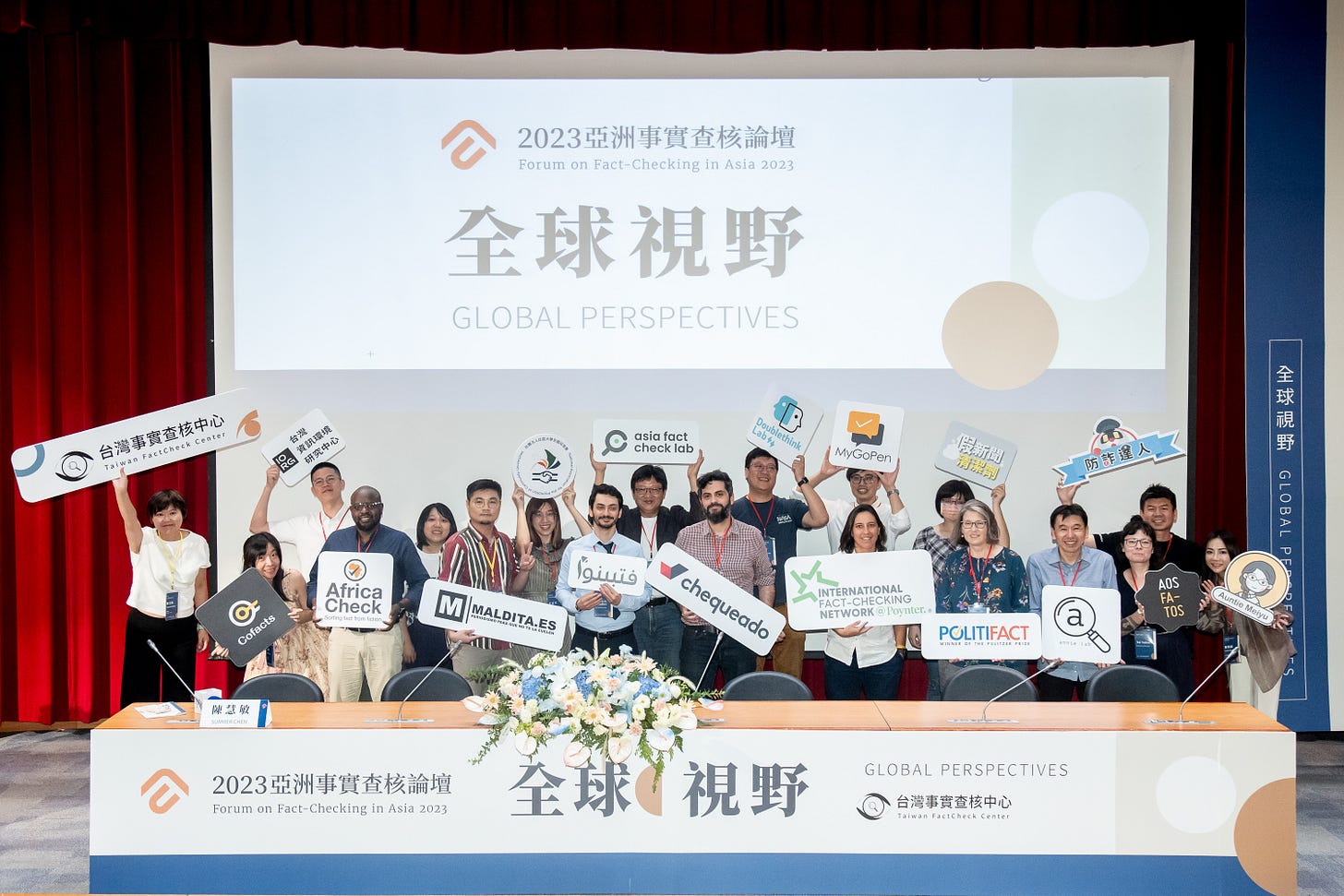Gamification, community outreach, and other development in Asian media literacy education
Educators and journalists have been exploring different ways to engage people

As many readers of this newsletter know, media literacy and fact-checking have been gaining traction in Asia in recent years, with a great number of initiatives being launched to promote critical thinking and raise awareness among the news audience.
I spoke at three different international conferences on this very topic in the last three weeks — in Seoul, Taipei, and Tokyo. I learned so much from other speakers and panel presentations about different efforts in various countries in the region.
I can’t possibly write about all the things I jotted down, but here are some interesting projects that I believe might inspire you and other like-minded educators and journalists who are working in this space.
Community outreach:
One of the major issues in news literary education in informal settings is that such initiatives tend to attract mostly those people who are already concerned about information overload and have a certain degree of healthy scepticism.
Of course, it is important for them to learn about newer tools and techniques in workshops and seminars, too, but if people who need more fundamental training in critical thinking are not interested in developing better literacy skills, the overall social problems that informal education tries to address won’t be alleviated.
Quite a few initiatives have been trying to change that trend in Asia by going into various communities instead of asking people to come to them. The following are some notable examples, although there are many more.
DataLEAD’s FactShala in India is a large-scale, nationwide media literacy programme. A few hundred trainers across the country work in cities, local communities and villages. Its coffee table book (pdf) features more than 100 photos that showcase their impressive efforts.
Taiwan's Fake News Cleaner (假新聞清潔劑) has been taking a similar approach for some time. Volunteers go to wet markets, parks, hiking trails, temples, elderly centres, and so on, to raise awareness. This four-year-old YouTube video shows how they mimicked Pokemon Go in their effort before the pandemic.
Also in Taiwan, TransAsia Sisters Association (南洋台灣姊妹會) collaborated with Taiwan Fact-check Center and Mafindo from Indonesia to reach out to Indonesian migrant communities to raise awareness about misinformation and fact-checking in places like train stations and stores catering to their community.
In Indonesia, Mafindo was also involved in a 22-minute sitcom screening roadshow in public health facilities in both rural and urban areas. The comedy-drama discusses COVID-19-related misinformation, and the screening was followed by a talk about the importance of fact-checking.

Gamification
Gamification of news, media, and information literacy instructions is another area that has been expanding quite rapidly. The following are just a few of the many initiatives that are underway in Asia. Many collaborate with game developers and IT engineers who were not previously interested in this field, which is perhaps an encouraging sign.
Japan’s SmartNews Media Research Institute has this social media simulation game. The language of the demo can be switched from Japanese to English if you’re interested. There are similar approaches around the world, but what I like about this particular one is the backend for educators. It has a robust assessment and feedback system, which can be very useful for teachers and researchers who are using the game in class.
Malaysia’s ARUS Academy developed a classroom simulation. In this scenario-based instruction, students put themselves into the shoes of journalists working for different media outlets. I also learned that they are developing a media literacy card game — yes, the physical cards that people can play offline, which should become available sometime this year.
Another organisation, Malaysia Information Literacy Education, created an online game specifically targeting young, first-time voters in the country. We all know from various research that misleading claims and nefarious attempts to manipulate public conversations are particularly severe during election campaign periods. Making election the topic of gamification is an interesting approach.
In South Korea, CheckTalk online game developed by Community Media Foundation simulates messaging apps and teaches basic fact-checking. They also developed a more elaborate mobile game app called Fact Squad with multiple levels and stages. I saw a presentation of this game, and it looked really fun!
Before you go
For those of you who joined our first ANNIE Connect online study group on July 21, thank you so much again. We will meet monthly, and our next gathering is on August 18 from 14:30 to 15:30 (GMT+8). If you’re interested, here’s the registration link:
https://hku.zoom.us/meeting/register/tJ0rcuuvqzspGNBeY11cN6QZG8X6WIuVxhCO
Lastly, our friends at Fact Crescendo are leading a train-the-trainer programme with International Center For Journalists and MediaWise. It is an in-person training, and selected participants will receive a US$2,000 grant to organise their own events and workshop. Application closes on August 4.



